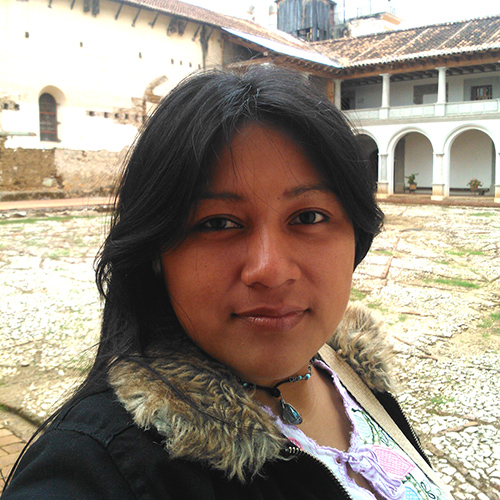Malloni Puc Alcocer
About
 I was born in the touristic city of Cancún, Quintana Roo but when I was 6 years old, my family moved to the community of Leona Vicario, Quintana Roo. There in my family learned how to work farming and got close to the rainforest. During 2006-2011, I completed a Bachelors degree in International Affairs at the University of Quintana Roo, located in Chetumal; nevertheless, I always felt a passion to be related to nature and its ecosystems. For this reason, in 2010, and as part of my Bachelors program, I did a placement related to wildlife management in the Ministry of Environment and Natural Resources (Semarnat). Afterwards, in 2011, I worked as a research assistant at ‘El Colegio de la Frontera Sur’ (ECOSUR) and in 2013 I was accepted as a graduate student in the Master of Science in Natural Resources and Rural Development at ECOSUR. On a personal basis, I am also proud to acknowledge that I am of Mayan heritage and that my grandparents are able to speak the Mayan language and that my surname “Puc” is Mayan.
I was born in the touristic city of Cancún, Quintana Roo but when I was 6 years old, my family moved to the community of Leona Vicario, Quintana Roo. There in my family learned how to work farming and got close to the rainforest. During 2006-2011, I completed a Bachelors degree in International Affairs at the University of Quintana Roo, located in Chetumal; nevertheless, I always felt a passion to be related to nature and its ecosystems. For this reason, in 2010, and as part of my Bachelors program, I did a placement related to wildlife management in the Ministry of Environment and Natural Resources (Semarnat). Afterwards, in 2011, I worked as a research assistant at ‘El Colegio de la Frontera Sur’ (ECOSUR) and in 2013 I was accepted as a graduate student in the Master of Science in Natural Resources and Rural Development at ECOSUR. On a personal basis, I am also proud to acknowledge that I am of Mayan heritage and that my grandparents are able to speak the Mayan language and that my surname “Puc” is Mayan.
Place
My study area is the tropical rainforest where there is a close interaction between the Mayan people and nature. In particular, this area is called the Maya Zone and nearly 70% of its local inhabitants are able to speak the Maya-Yucatec language on a daily basis. The major livelihood of Maya communities is slash-and-burn shifting cultivation. This productive system leads other minor livelihoods along the year including, freshwater fishing, hunting, honey bee harvesting, gum harvesting, as well as seasonal migration to the tourist cities of Cancún and Playa del Carmen.
Research
The title of my research is “Community conservation of natural resources in the common holdings (ejidos) Noh-Cah and X-Maben, Quintana Roo”. The study is aimed at assessing the meanings and motivations for rainforest conservation of the Maya communities, as well as to assess the change in the rainforest coverage from 1975 to the present. The approach of my research uses the Social Ecological Systems lens wherein the Maya communities form the social subsystem and the rainforest is the ecological subsystem. I will also review the public policy programs launched in the study area in the last 20 years, to examine whether these are in agreement with the Maya traditions and livelihoods or whether they have brought factors that could disrupt local traditions.


